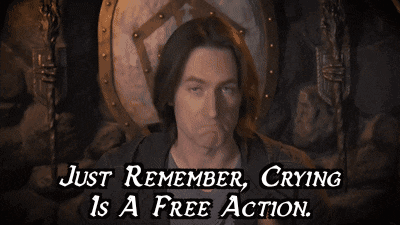CleverNickName
Limit Break Dancing (He/They)
So I was inspired by @Snarf Zagyg 's "Why Ya Gotta Be So Basic? Understanding the Resurgence of Moldvay's Basic" thread (and from doing a little bit of housekeeping on my gaming bookshelf), and I fell down a rabbit hole while reorganizing my collection. I started out just doing some dusting, then some light reorganizing, and then before I knew it I was jotting down notes for adapting a Basic adventure module ("B4, The Lost City") to my current 5E gaming group this weekend.
Hey, these things happen.
TL;DR, I was feeling nostalgic, and I was also in desperate need of a distraction from (gestures broadly out the window), so I cracked the covers on some books I hadn't touched in years.
Now I'm wondering: how many of us remember these old gems of D&D history (fondly or otherwise)? Did you ever play any of them? Do you have any favorites? Are there any that you just couldn't get into? And I put a poll together for everyone to vote for their favorites...whatever "favorite" means to you.
Hey, these things happen.
TL;DR, I was feeling nostalgic, and I was also in desperate need of a distraction from (gestures broadly out the window), so I cracked the covers on some books I hadn't touched in years.
Now I'm wondering: how many of us remember these old gems of D&D history (fondly or otherwise)? Did you ever play any of them? Do you have any favorites? Are there any that you just couldn't get into? And I put a poll together for everyone to vote for their favorites...whatever "favorite" means to you.

